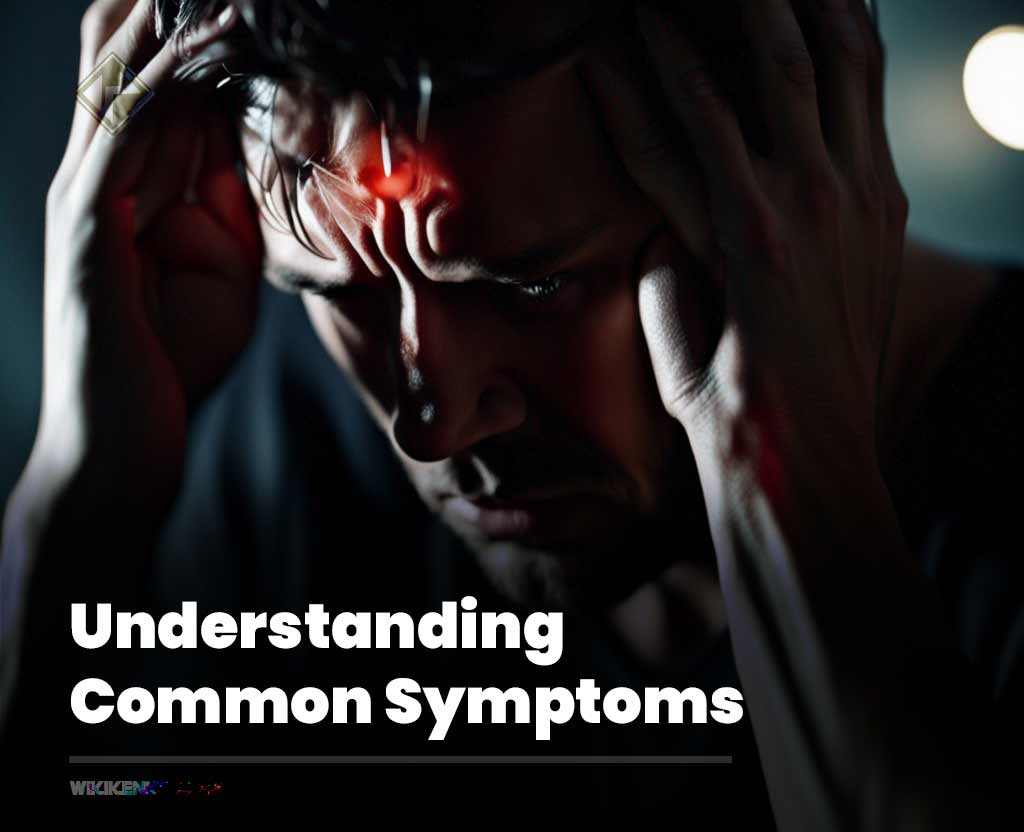In this article, we aim to help you understand common symptoms and offer guidance on adapting your approach to better manage your health. By delving into the intricacies of various symptoms, we empower you to make informed decisions and take proactive steps toward a healthier lifestyle.
Identifying Symptoms: A Closer Look
1. Recognizing the Early Signs
Early recognition of symptoms plays a vital role in preventing potential health issues. By being aware of subtle changes in your body, you can take timely action and seek appropriate medical advice. It is essential to pay attention to both physical and psychological symptoms to ensure comprehensive health assessment.
2. Common Physical Symptoms
Physical symptoms can manifest in various ways and may differ depending on the underlying cause. It is crucial to familiarize yourself with these symptoms to accurately communicate your concerns to healthcare professionals. Some common physical symptoms include:
- Fatigue: Persistent tiredness or lack of energy.
- Headache: Aching or discomfort in the head or neck region.
- Abdominal Pain: Discomfort or cramping in the stomach or abdominal area.
- Nausea: Feeling of queasiness or an inclination to vomit.
- Shortness of Breath: Difficulty breathing or feeling breathless.
3. Psychological Symptoms
Mental and emotional well-being are equally important aspects of overall health. Recognizing psychological symptoms is essential for addressing any underlying mental health concerns. Some common psychological symptoms include:
- Anxiety: Excessive worry, fear, or restlessness.
- Depression: Persistent sadness, loss of interest, or low mood.
- Irritability: Easily provoked or experiencing heightened sensitivity.
- Sleep Disturbances: Difficulty falling asleep, staying asleep, or experiencing disturbed sleep patterns.
- Lack of Concentration: Inability to focus or sustain attention on tasks.

Adapting Your Approach: Expert Recommendations
1. Seeking Professional Guidance
When experiencing symptoms, it is essential to consult a qualified healthcare professional. They can provide accurate diagnoses, recommend appropriate treatments, and offer guidance tailored to your specific situation. Remember, self-diagnosis can lead to misunderstandings and potentially delay necessary medical interventions.
2. Maintaining Open Communication
Effectively communicating your symptoms to healthcare providers is crucial for accurate diagnosis and treatment. Provide detailed information about the onset, duration, intensity, and any associated factors related to your symptoms. This will assist healthcare professionals in formulating a comprehensive assessment and developing an effective treatment plan.
3. Prioritizing Self-Care
While seeking medical advice is vital, it is equally important to prioritize self-care. Engage in healthy lifestyle practices such as regular exercise, balanced nutrition, sufficient sleep, and stress management. These habits contribute to overall well-being and can help alleviate certain symptoms.
4. Regular Health Check-ups
Periodic health check-ups are instrumental in detecting any underlying health conditions or identifying potential risks. By staying proactive and scheduling routine medical examinations, you increase the likelihood of early detection and prompt intervention, if necessary.
5. Engaging in Holistic Approaches
Incorporating holistic approaches can complement traditional medical treatments and support overall well-being. Techniques such as meditation, yoga, and relaxation exercises can help manage stress, promote mental clarity, and enhance physical resilience.

Conclusion
Understanding symptoms is crucial for maintaining good health and seeking appropriate medical care. By recognizing early signs, and adapting your approach through professional guidance, effective communication, self-care, regular check-ups, and holistic approaches, you can take control of your well-being. At WikiKenko, we are committed to empowering you with the knowledge that promotes informed decision-making and fosters a healthier, happier life.
Frequently Asked Questions (FAQs)
-
What should I do if I experience persistent symptoms?
It is advisable to consult a healthcare professional for a comprehensive evaluation.
-
Are there any self-care practices to alleviate common symptoms?
Engaging in regular exercise, maintaining a balanced diet, and managing stress can help alleviate certain symptoms.
-
How can I effectively communicate my symptoms to a healthcare professional?
Provide detailed information about the onset, duration, intensity, and any associated factors related to your symptoms.
-
Why are regular health check-ups important?
Regular check-ups can detect underlying health conditions and identify potential risks at an early stage.
-
Can holistic approaches be used alongside traditional medical treatments?
Yes, holistic approaches such as meditation, yoga, and relaxation exercises can complement traditional medical treatments.









